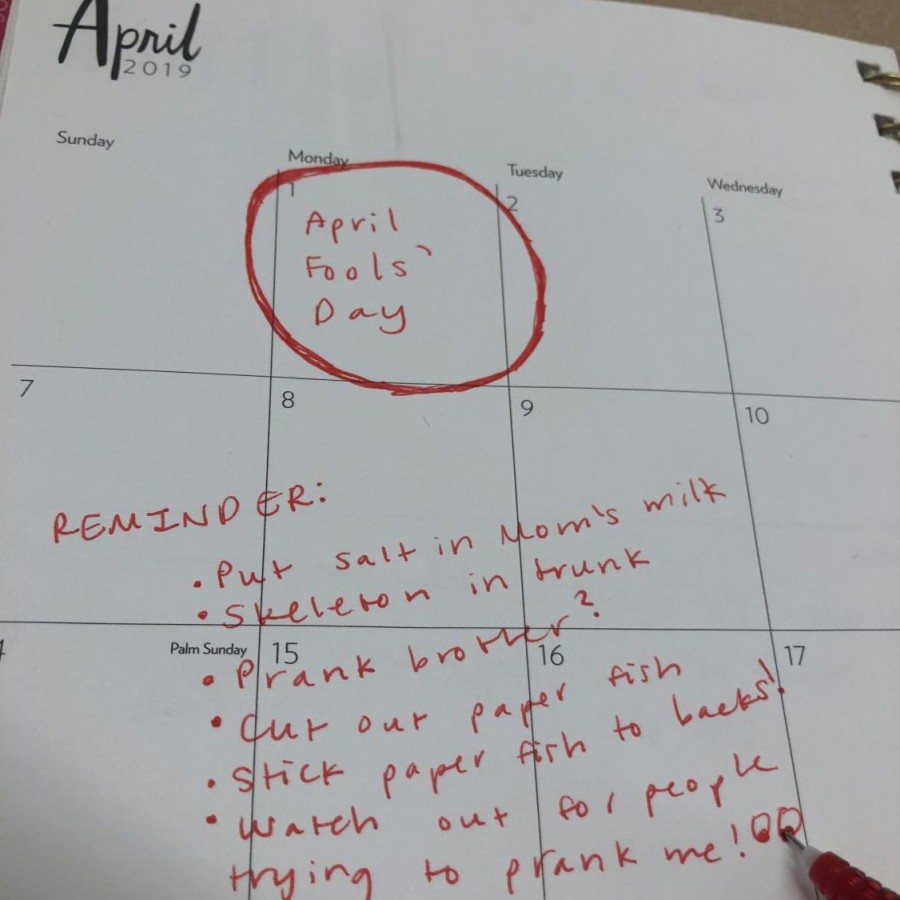April Fools’ Day, celebrated in America on the first of April, is a universal holiday that serves to bring out the trickster tendencies within many.
Although the practice of this holiday spans across many countries, many are unsure of its origin. Many are also unsure of just how popular this holiday is; they wonder if there are many practitioners of this playful holiday.
April Fools’ Day has many possible theories regarding its origin, but some historians believe its start can be traced back to 1582. This is when France switched its calendar from the Julian Calendar to the Gregorian Calendar.
In doing this, the first day of the new year switched from March 25 to January 1. However, many did not realize this and continued to celebrate the start of the new year in March. Those who did became the object of ridicule and jokes.
The practice carries on and has since expanded to affect even more people. Now, the sufferers are not limited to those unaware of the Gregorian Calendar. Instead, they can be an unsuspecting peer, an oblivious sibling, or an unknowing teacher.
The practice of April Fools’ is universal, although it goes by different names. In France, the holiday is called Poisson d’Avril, and it involves oblivious schoolchildren and pictures of fish. During Poisson d’Avril, schoolchildren will tape a picture of a fish onto their classmate’s back and wait for chaos to ensue.
Portugal celebrates in a different, albeit still prank-filled way. On the Sunday and Monday prior to Lent, those in Portugal love to throw flour on each other. Denmark celebrates April Fools’ Day and another prank holiday called Maj-kat, or May cat, celebrated on the first of May.
In America, pranking can go to extremes. Popular businesses often want to get in on the fun. For example, in 1996 Taco Bell had a prank including the Liberty Bell. They claimed to have bought it and were planning to rename it “Taco Liberty Bell”–probably not what the Founding Fathers had in mind for the iconic object.
While there is a lot of history surrounding this holiday, H do many Americans, including Pleasant Valley High School students, actually still celebrate this holiday?
Although PV senior Grace Schons does not personally instigate pranks anymore, she used to be very involved in the practice of this holiday. “When I was younger I used to pull pranks on my family, but in the last four or five years, I haven’t pranked anyone on April Fools’ Day,” she said.
Schons’ father still pranks her every year, but they have since scaled down their usual prank wars. “We used to have a prank war of sorts that would last a week or two after April Fools’ Day,” Schons said.
Schons gave an example of one of the pranks, and subsequent revenge prank, that she and her father participated in. “A couple of years ago, I put plastic wrap under the cap of his shampoo container so it wouldn’t come out. The next day when I was at school he covered everything in my room with plastic wrap,” she said.
Schons believes April Fools’ Day can be fun, as long as people are cognizant of their limits. “I think that pranks are fun if they’re not harmful and if you do them on the right person. You really have to know your target.”
Schons is right about the dark side of pranks; they have the potential to be harmful. This plays a role in why PV senior Katie Henricksen doesn’t participate in the holiday. “I think April Fools’ can be fun, but I don’t normally pull pranks because I don’t want to be mean,” she said.
In general, Henricksen does not enjoy April Fools’ Day. She expanded on her opinion regarding this popular holiday. “A lot of times I view it as annoying. I think that little things like I’ve seen in schools like sticking sticky notes on someone’s back is really annoying and immature. I don’t like mean pranks I just like fun ones,” she said.
However, sometimes Henricksen does like pranks, especially if they are on the more lighthearted side. A few years ago BBC released a fake video showing penguins flying, which she really enjoyed. Henricksen also likes to view pranks which involve scaring family members. But, while she likes the idea of pranks, she doubts she could ever pull one off.
Despite their differing opinions regarding this holiday, both Henricksen and Schons agree that April Fools’ Day is not as prevalent as it used to be. Henricksen said, “April Fools’ is definitely not as big of a deal as it was in the past and I don’t think people care all that much for it anymore.”
Schons echoed Henricksen’s statement. “I think the majority of people don’t celebrate April Fools’ Day,” Schons said. “Of course there are a couple of people who will be pulling pranks, but most are pretty indifferent to the holiday.”
However, Henricksen applauds those who can pull of cool pranks and urges them to do so if they desire. “I highly respect those who can actually pull of funny April Fools’ jokes, some people get so creative with the things they do and I love it. Don’t feel ashamed if you like to do it,” she said.
Although April Fools’ Day may seem like a simple excuse to be mischievous, it has a complex history and cultural presence within society.









